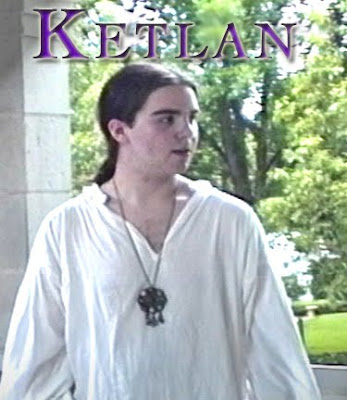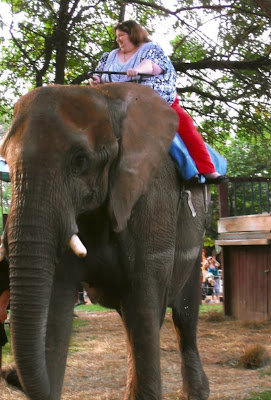The basic idea of the Hero of a Thousand Faces and Vogler's book is the Hero's Journeywith involves a journey (duh) to gain something (love, knowledge, revenge, weath, the Ark, etc.) and on that journey the hero changes in some way due to the various trials he/she has to face, usually a positive way but not always (depends on the genre).
One of the central themes is that every "journey" has what Vogler calls a Call to Adventure. It's a major and necessary step in the story. The hero doesn't just pop into the journey - the journey starts with something that sweeps the hero towards his/her destiny. It's something that in the end cannot be ignored - the heroes home is destroyed, hero is sold into slavery, hero is abducted by aliens, hero switches places with a prince, etc. Most heroes initially Refuse the Call, but eventually Accept the Call when faced with a something they cannot ignore. In this case most heroes start out unwilling, but once they accept the call they accept the adventure and becomes willing.
A perfect example of this is Luke Skywalker in Star Wars. In the beginning he receives the Call to Adventure when he visits Obi Wan after receiving Princess Leia's message from R2-D2. At that point he Refuses the Call, but when he returns home to find his farm burned and his aunt and uncle dead he has no choice but to Accept the Call to Adventure and at that point becomes a Willing Hero. It is important to note that Lucas has said he used Hero with a Thousand Faces by Joseph Campbell when writing Star Wars.
Willing Hero -- pretty much says it all. A hero who willing accepts the challenge presented to him/her.
Unwilling Hero -- again, pretty obvious. A hero who doesn't want to be a hero, has no interest in saving the day, and would rather raise sheep or whatever.
Usually a book starts with an unwilling hero who becomes a willing hero. There are some heroes who start off willing, realize they're in over their heads, and become unwilling. Then they have to receive a new Call to Adventure in order to become willing again. I know there are examples of the later but I can't think of any right now, except possibly Duddley Do Right.
Although there are many types of Willing and Unwilling Heroes, two of my favorites are actually not mentioned in the book: the Reluctant Hero and the Hapless Hero.
The Reluctant Hero
Pretty much is the Unwilling Hero by definition, but unlike some unwilling heroes theReluctant Hero does follow the path and often tries his/her best but their heart isn't really in it. Usually the reluctant hero doesn't have a good enough reason to fight the fight or follow the journey. Whatever the Call to Adventure is, it isn't enough to fully engage them. Something else has to happen in order for the hero to overcome his reluctance and become something more or the story will ultimately fail. The hero needs a personal reason to finish the journey successfully. Reluctant heroes are often pushed into the adventure by fate or birthright and whether they fight or not does not mean they are really willing.
Harry Potter is a great example of a Reluctant Hero. You may think "what? he was totally willing!"...well, no he wasn't. He was famous in the wizarding world because he survived Voldemort and is fated to destroy him, but Potter had no choice in accepting that role and he often throughout the course of the books fights against that destiny. He accepts individual fights with Voldemort when his friends are in danger, but until the very end he isn't fighting simply because of his destiny to do so -- it takes him seven books to accept that part and until he ultimately accepts the Call to Adventure he was given the night he survived and got the scar he cannot be anything more than a Reluctant Hero -- he has to accept the true, original Call to Adventure in order for his Hero's Journey to be complete. I hope I explained that well enough.
Other examples of Reluctant Heroes are Jack Sparrow from the Pirates movies, Cordelia from Buffy the Vampire Slayer, Inuyasha from Inuyasha, and probably some others.
From my own works Ketlan (in the Destiny book) is totally a Reluctant Hero. It takes him three books to fully accept his original Call to Adventure. Turlo in Pandora's Box is a Reluctant Hero at first, fighting against the family history of being a traitor and a rebel - once he joins the rebels - and accepts his place there and they accept him - then he becomes a Willing Hero. Zandra in The Curse is a very Reluctant Hero and it takes a very emotional and tramatizing experience in episode 5 to make her a Willing Hero (and even then she isn't fully).
The Hapless Hero
This type of hero can be willing or unwilling, reluctant or gung ho. The Hapless Hero is a hero who is simply in over his/her head. He/She may accept the Call to Adventure right away - may want to be a hero despretly, but quite simply doesn't know how. Many mistakes are made along the way, and the real journey is teaching the hero how to be heroic - usually changing them from a Hapless Hero into a Classic Hero, or another type. This type is found most often in comedies and movies where the "underdog" is the hero. The Hapless Hero comes from an unlikely place and often becomes the hero not through destiny but through chance - being at the right place at the right time - or the wrong place at the wrong time depending on how he/she looks at it. This type is a favorite because they are the most "real" - Hapless Heroes are what we all start out as and most people can identify with them more easily than with other types.
A great example of the Hapless Hero is Chuck from the TV show of the same name. He's a smart geek who works at the Buy More (ie Best Buy), and suddenly receives a top secret computer program that gets downloaded into his brain. He becomes first an Unwilling Hero, than a Reluctant Hero, and eventually a Willing Hero (at the end of season 2 actually), but always a Hapless Hero - comically saving the day often by luck as much as talent. Eventually over four seasons he becomes a super spy and more like a Classic Hero, but it's the haplessness that makes him so likeable and in the end it's that part of him that no one wants to lose.
Other examples of Hapless Heroes are Maxwell Smart from Get Smart, Wallace Ritchie from The Man Who Knew Too Little, Derek Zoolander from Zoolander, and there are a lot more that I can't think of right now.
From my own works Ketlan is also a Hapless Hero for most of Destiny, having spent ten years as a peasant farmer then being thrust into the role of a prince and adventurer. Terri Madison from Eidolon is definately a Hapless Hero - she is willing and eager to help out, but keeps getting shot, stabbed, and held hostage - by the time the show ends she fights back and refuses to be a hostage any longer.
The book I'll be working on for NaNoWriMo is State Line Road and the hero, Becky Flynn is aHapless Hero who finds herself suddenly caught up in a world that she never knew existed. The following exchange between and CeCe Montgomery (a reluctant mentor-friend) sums it up pretty well:
BECKY: I’m starting to think I’m just a pawn. Should I be worried?
CECE: You’re Death’s bitch, subcontracted to Satan, and living in Wealth’s pocket. Yes, I’d be worried.
No pictures today cause I don't feel like it. ;P


